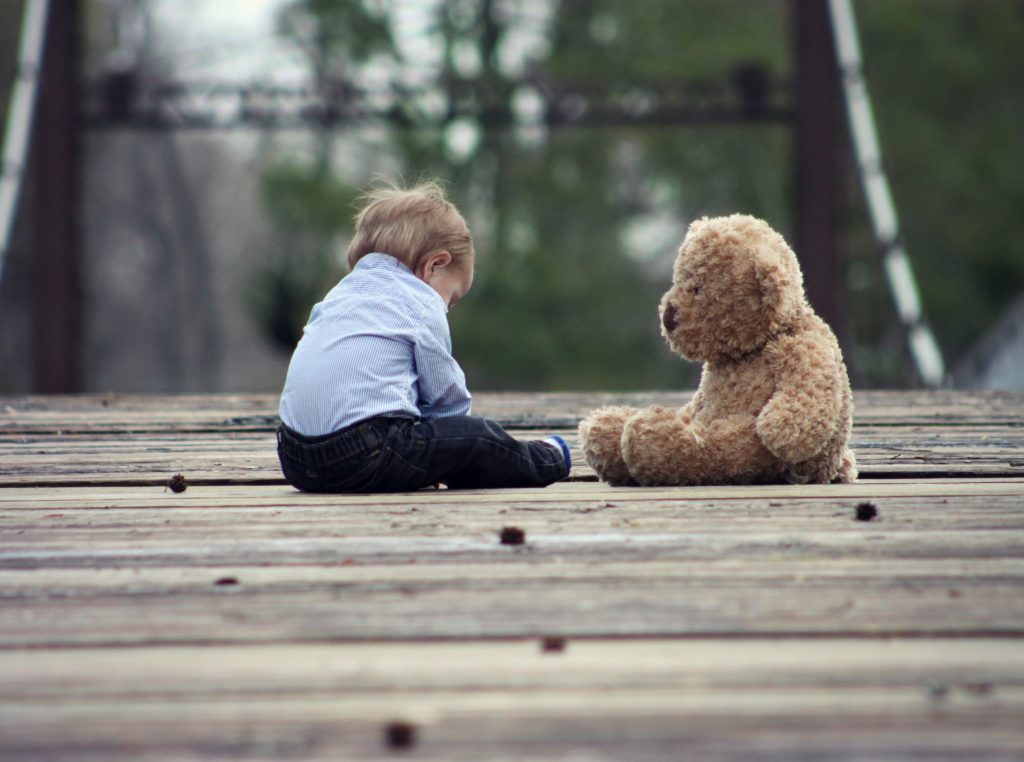
Original grief that is not processed can be a powerful force that keeps us locked in negative thinking patterns. Conversely, the awareness of our original grief can be the key that unlocks the path to move through our grief, so we can live unburdened by the pain of the past and in the fullness of the present moment.
First, it would be helpful to share a common definition of original grief.
Original grief is our deepest feeling of intense sadness due to the most significant loss we experienced, usually in childhood. ©
Original grief presents differently for everyone, but there are a few commonalities to look for when trying to identify your original grief. First, look to your childhood and make a list of the pain and/or rejection you can recall. For instance, trauma, abuse, abandonment, fear, the witnessing of others in the aforementioned situations, not feeling loved, safe, or important, and growing up with other circumstances of dysfunction such as addiction or mental illness, can all create a very deep sense of original grief. Those are examples of the more overt types of the origins of grief. However, original grief can also be born in seemingly functional families, where emotions may not have been fully expressed or modeled, relationships may have been surface oriented and lacked authenticity, or physical affection was not common in the family. All of these examples of childhood experiences can create a sense of original grief. Obvious trauma and abuse, quiet neglect and emotional inhibition can all result in a child growing up to feel, ‘I am not OK as I am’ or ‘It’s my fault’, which can be how original grief ‘sounds’ in our minds.
When we feel original grief as children, it usually creates very negative self talk that can lead to various unhealthy thought patterns.. This self talk can be very quiet and become internalized, especially if it starts when we are young. If we have negative habitual thought patterns , it is easy to see how we will likely make negative choices and also likely feel negative feelings, such as anger, sadness, loneliness, shame, etc. As we get older, if our original grief has not been identified and processed, there are some common ways we can respond, some examples are anxiety, depression, addiction, codependency, or repeating what we were taught.
The significance of original grief can remain unnoticed for many years. This is called grief denial. Plenty of adults can recall their original grief and believe that just because they are still alive and moving forward, they ‘beat’ their childhood experience, and ‘it’s not going to hold me back’. Sometimes adults even become the opposite of their family of origin as a way to prove to themselves that ‘I am ok’. Also, sometimes adults remain in denial by telling themselves, ‘things were not so bad’, or ‘They did the best they could’. However it sounds, grief denial can keep us stuck, never truly healing, or feeling worthy.
Conversely, when we become consciously aware of our original grief, we can then do the hard work of digging deep and truly understanding how our experience affected us, then feel and heal the old wounds that hold us captive in the ways we responded. This deep work is not about blaming our parents or caregivers, nor is it about making excuses for our choices, rather this deep work is all about healing and moving forward in a authentic and fully conscious manner. Original grief is a layer under trauma. After trauma is reprocessed, original grief is still there to feel, process, and move through. If original grief remains unprocessed, it can reactivate trauma, so this is an important step in the healing process. For example, the little child who was abused must receive effective trauma treatment at some point. Then, when there are no more symptoms of trauma, the specific original grief can be identified, felt, processed, and moved through. In this instance, the original grief of trauma might be the loss of a safe childhood. This knowledge of a safe and innocent childhood being stolen away can be utilized as a powerful tool in the overall healing process. The processing of original grief can be the work that frees us from habitual negative self talk and repeating unhealthy behaviors.
To find out more about Original Grief© contact Dr. Sophia Caudle at Sophia@bullcitypsychotherapy.com.
 As it turns out, one of the main feelings we typically try very hard not to feel, is one of our best and most effective pathways to true emotional freedom and wellbeing.
As it turns out, one of the main feelings we typically try very hard not to feel, is one of our best and most effective pathways to true emotional freedom and wellbeing.









